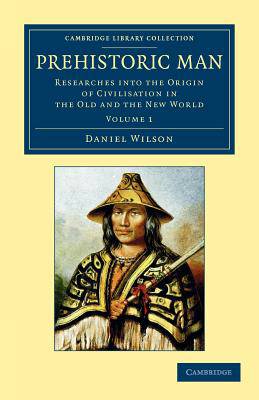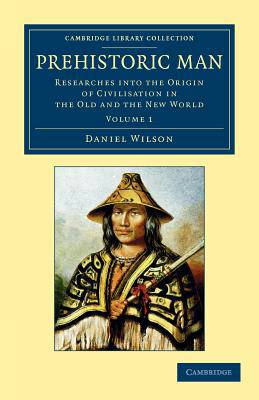
Je cadeautjes zeker op tijd in huis hebben voor de feestdagen? Kom langs in onze winkels en vind het perfecte geschenk!
- Afhalen na 1 uur in een winkel met voorraad
- Gratis thuislevering in België vanaf € 30
- Ruim aanbod met 7 miljoen producten
Je cadeautjes zeker op tijd in huis hebben voor de feestdagen? Kom langs in onze winkels en vind het perfecte geschenk!
- Afhalen na 1 uur in een winkel met voorraad
- Gratis thuislevering in België vanaf € 30
- Ruim aanbod met 7 miljoen producten
Zoeken
Prehistoric Man - Volume 1
Researches into the Origin of Civilisation in the Old and the New World
Daniel Wilson
€ 91,95
+ 183 punten
Omschrijving
The Scottish archaeologist and anthropologist Daniel Wilson (1816-92) spent the latter part of his life in Canada. Published in 1862, this is a seminal work in the study of early man in which Wilson utilises studies of native tribes 'still seen there in a condition which seems to reproduce some of the most familiar phases ascribed to the infancy of the unhistoric world'. He believed that civilisations initially developed in mild climates and judged the Mayans to have been the most advanced civilisation in the New World. Twentieth-century anthropologist Bruce Trigger argued that Wilson 'interpreted evidence about human behaviour in a way that is far more in accord with modern thinking than are the racist views of Darwin and Lubbock', and it is in this light that this two-volume work can be judged. Volume 1 covers such important areas as the development and use of metals and 'the architectural instinct'.
Specificaties
Betrokkenen
- Auteur(s):
- Uitgeverij:
Inhoud
- Aantal bladzijden:
- 516
- Taal:
- Engels
- Reeks:
Eigenschappen
- Productcode (EAN):
- 9781108054843
- Verschijningsdatum:
- 15/11/2012
- Uitvoering:
- Paperback
- Formaat:
- Trade paperback (VS)
- Afmetingen:
- 140 mm x 216 mm
- Gewicht:
- 648 g

Alleen bij Standaard Boekhandel
+ 183 punten op je klantenkaart van Standaard Boekhandel
Beoordelingen
We publiceren alleen reviews die voldoen aan de voorwaarden voor reviews. Bekijk onze voorwaarden voor reviews.









